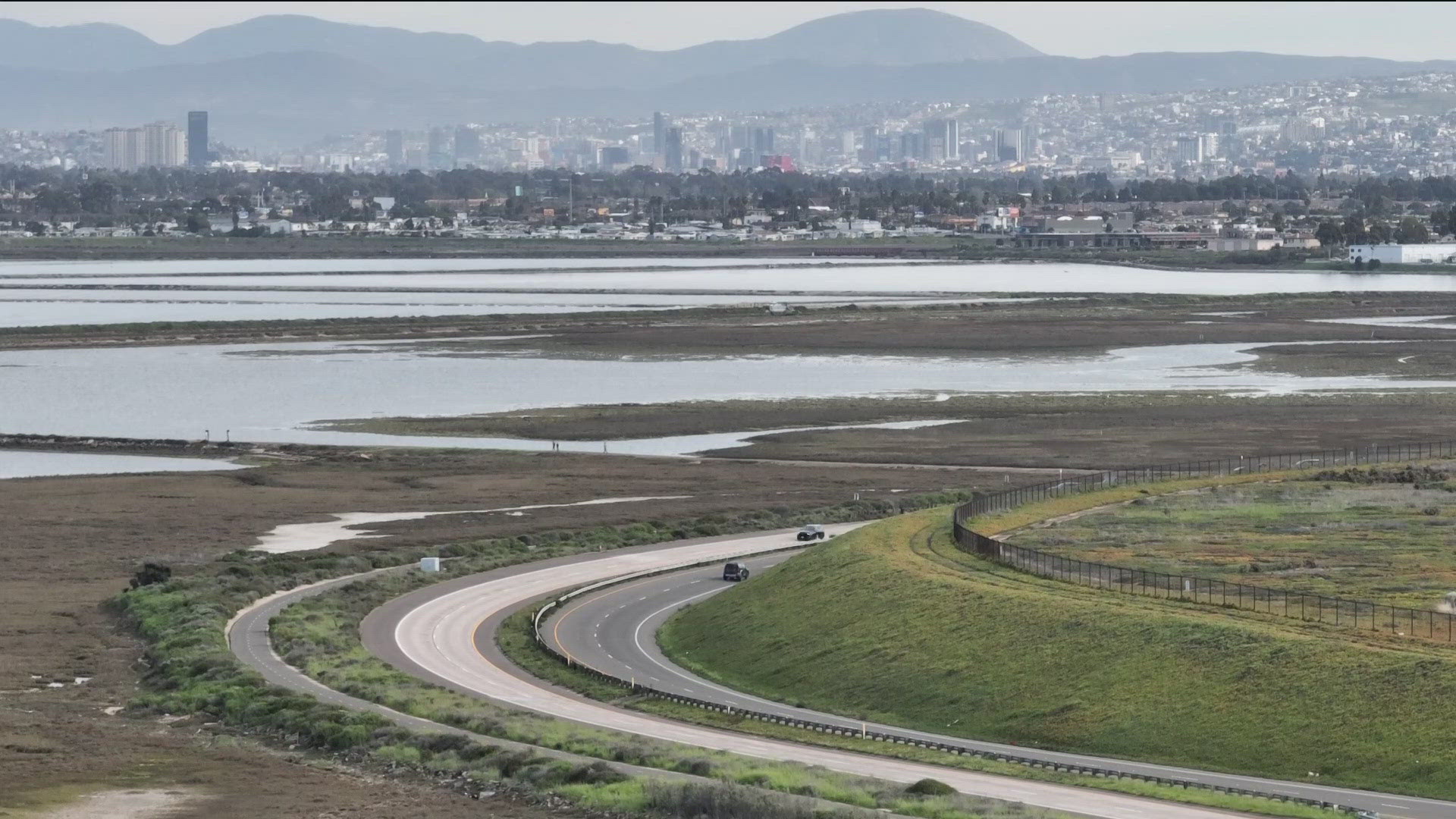SAN DIEGO — California's elected leaders Wednesday applauded the International Boundary and Water Commission's announcement that it has awarded the contract for a project to expand the South Bay International Wastewater Treatment Plant.
Over the course of the project, the IBWC will use the more than $400 million in federal funding secured by the Congressional delegation to repair and expand the plant.
"Today's announcement for the South Bay International Wastewater Treatment Plant is a step in the right direction in beginning to seriously address toxic waste and raw sewage flowing from the Tijuana River," said Sen. Alex Padilla, D-California.
"The health and environmental hazards created by this pollution has contaminated Southern California's air and water for too long, and I'm committed to fighting for more federal resources to address this crisis with the urgency it demands."
In March, the San Diego Congressional delegation secured over $156 million in funding toward critical repairs to the South Bay International Wastewater Treatment Plant.
In 2019, the delegation secured $300 million to expand the South Bay plant from 25 million gallons per day to 50 million gallons per day. In 2022, the delegation passed legislation to clear the path for the IBWC to use the funds to address harmful pollutants in the Tijuana River Valley.
"Our communities can't wait. I'm glad to see the IBWC take this important step, which will allow them to put the more than $400 million my colleagues and I secured for the South Bay International Wastewater Treatment Plant to work for repairs and upgrades," said Rep. Juan Vargas, D-San Diego. "This project will help double the plant's capacity, prevent up to 90% of untreated wastewater from reaching the coast, and provide cleaner and safer water.
"I'll keep fighting alongside the San Diego Congressional delegation to secure the resources needed to combat pollution in the Tijuana River Valley, make sure Mexico does its part, and ensure our water, land, and air is safe for all," he said.
Imperial Beach Mayor Paloma Aguirre said while she is grateful to San Diego's congressional delegation for securing this federal funding, it is not enough.
"I am not celebrating," she told CBS 8. "I want people to do more!"
She said the projected five-year timeline for completion is entirely too long.
"It is five years that my community can not afford to continue to wait," she said, urging the federal government to declare a state of emergency. "This is exactly why we have been asking for the state of emergency from our President."
Aguirre said that a federal state of emergency would expedite the implementation of these solutions.
She also pointed to the IBWC's goal of eliminating up to 90 percent of untreated water reaching the coast.
"We are not going to reach this, with the fixing of the plant here and the fixing of the plant in Mexico, unless the Tijuana River itself is diverted and treated," she added.
Currently, there is no funding for that diversion or treatment.
Every day, up to 60 million gallons of raw sewage flows from Mexico into the U.S., Aguirre said, endangering the health and threatening the economy of her community.
"That is the urgency I'm trying to communicate to everybody," she said. "All of our leaders in Congress and at the state level, we all need to be rowing in the same direction and asking the White House for help."
"If this were happening in Carmel-by-the-Sea or in Marin County, we would be seeing a much different story," Aguirre added.
In May 2024, the elected officials called on the U.S. Centers for Disease Control and Prevention to look into the contaminants in the water, soil, and air from the sewage and the connection to reported increases in illnesses and other symptoms. The CDC has agreed to begin an investigation into the public health impacts of the Tijuana River sewage pollution.
"This announcement has been a long time coming -- and I'm so excited to see the $400 million that our congressional delegation secured result in big, meaningful progress to end the Tijuana River Valley crisis," said Rep. Sara Jacobs, D-San Diego. "Our work isn't over yet, and we will continue to review the progress of the IBWC construction, collaborate with our Mexican counterparts, and work together to ensure that communities on both sides of the border can live safely."
WATCH RELATED: CDC agrees to investigate health effects of Tijuana River sewage contamination

